Panama and Suriname: Uniting Forces in Waste Management and Environmental Sustainability in Carbon-Zero Times
Writer : Magda Monteza | Datum : 2025-01-29 13:18:56
Introduction
Through the Collaborative Alumni Project Grant from the Hubert H. Humphrey Fellowship Program, funded by the Institute of International Education (IIE), initiatives were launched in Panam and Suriname to promote sustainable waste practices and raise awareness of waste impacts, revealing common needs and potential areas for joint action. The formal launch of the G-Zero forum at the COP29 Climate Summit in Baku, Azerbaijan, highlights a pivotal opportunity to strengthen ties between Panama and Suriname in addressing shared environmental challenges. This article examines the potential for Panama and Suriname to build a resilient sustainability agenda and proposes collaborative solutions that respect local ecosystems, even as industrial pressures increase.
Defining the Issue and the Carbon-Zero Commitment
Carbon-zero, or carbon-neutral, status refers to a country’s ability to balance its carbon emissions with actions that reduce or offset them, like forest conservation, reforestation, and implementing sustainable energy solutions. Panama and Suriname have achieved carbon-zero certification, primarily due to vast tropical forests that act as carbon sinks, absorbing more carbon dioxide than these countries emit (IPCC, 2023).
The creation of the G-Zero forum, co-founded by Suriname, Panama, Bhutan, and Madagascar, represents a landmark initiative aimed at fostering collaboration between carbon-zero and carbon-negative countries. This forum, launched during COP29, seeks to promote global efforts toward a climate-neutral and climate-resilient world. For Panama and Suriname, the G-Zero forum provides a platform to jointly address challenges such as deforestation, pollution, and inadequate waste management while sharing best practices to enhance sustainability.
However, maintaining carbon-zero status presents challenges, especially as industrial pressures increase, including informal mining in Suriname and its future oil industry development. These factors increase the complexity of waste management and environmental conservation, especially because unregulated industrial activities contribute significantly to deforestation, pollution, and greenhouse gas emissions.
Waste Management and Carbon-Zero Objectives
Panama and Suriname recognize effective waste management as crucial to their carbon-zero goals. Inadequate waste management leads to significant greenhouse gas emissions, primarily methane, from decomposing organic waste in landfills (EPA, 2023). Each country has developed policies to reduce its environmental impact, yet their limited infrastructure, especially in rural and remote areas, poses ongoing challenges.
Through initiatives of the Collaborative Alumni Project Grant, groups from both countries have worked to raise awareness and introduce sustainable waste practices in specific regions, such as La Tranca de Sioguí (Panama), Paramaribo, and Brokopondo districts (Suriname), to improve waste management and reduce pollutants. Leveraging the momentum generated by the G-Zero forum, these efforts can now be scaled to address national and regional waste challenges collaboratively, ensuring alignment with broader carbon-zero goals.
Biodiversity and Shared Ecosystems
Panama and Suriname are rich in biodiversity, with ecosystems that play a critical role in supporting local and global biodiversity. Panama’s tropical rainforests and coastlines, alongside Suriname’s Amazonian rainforest, face ongoing pressures from pollution and deforestation. The G-Zero forum underscores the importance of uniting forces to protect these ecosystems, emphasizing community-based initiatives as a cornerstone of environmental conservation.
As noted during the implementation of the “Building the Basis for Introducing Sustainable Governance Practices in Waste Management and Sustainable Mining” project, educating communities about the impact of improper waste disposal, especially plastics, has proven essential in raising awareness and encouraging more sustainable practices. Enhanced collaboration between Panama and Suriname within the G-Zero framework could amplify these efforts, fostering a unified strategy to protect biodiversity and combat pollution.
Impact of Informal Mining and Oil Development in Suriname
In Suriname, informal mining—particularly gold mining—poses a significant threat to environmental sustainability and the country’s carbon-zero commitment. Unregulated gold extraction leads to extensive soil degradation, deforestation, and water pollution, especially in the Amazon rainforest areas critical for regional and global biodiversity. Mercury contamination, a common practice in informal mining, pollutes rivers and aquatic systems, compromising the health of nearby communities and local wildlife, including fish and birds that depend on these water sources (UNEP, 2022).
The G-Zero forum offers a unique opportunity for Panama and Suriname to address these industrial pressures together. By sharing regulatory frameworks and technological innovations, the two nations can strengthen environmental monitoring, promote sustainable extraction practices, and build local capacity to mitigate the harmful effects of unregulated activities. Early steps could include creating cross-border workshops, leveraging G-Zero networks to access funding, and implementing pilot projects to demonstrate the feasibility of sustainable alternatives.
Conclusion and Recommendations
As carbon-zero nations, Panama and Suriname are uniquely positioned to lead by example in sustainable waste management and environmental conservation. However, both countries face significant industrial and environmental challenges that require careful planning and strict regulatory frameworks.
In Suriname, the expansion of the oil industry and the widespread impact of informal gold mining pose serious threats to environmental stability. Unregulated mining activities generate high levels of contamination and deforestation, undermining carbon-zero efforts and endangering local ecosystems and the health of nearby communities (UNEP, 2022). Addressing these challenges demands a dual approach, prioritizing regulatory controls and promoting sustainable economic alternatives for the affected communities.
On the other hand, Panama needs to balance its industrial activities, such as port development and tourism, with its environmental commitments as a priority. The country can leverage its experience in waste management to share insights and best practices, supporting Suriname in building resilient waste management systems and fostering a shared agenda for sustainable industrial development.
The G-Zero forum serves as a vital catalyst for uniting Panama and Suriname in their sustainability efforts. Both nations should prioritize:
- Establishing bilateral working groups to develop actionable strategies for addressing waste management, pollution control, and biodiversity conservation.
- Sharing technical expertise and capacity-building initiatives to strengthen local and national environmental policies.
- Engaging the G-Zero network to secure funding and global support for pilot projects addressing industrial challenges, such as informal mining and waste infrastructure gaps.
Through joint efforts, expertise, and knowledge exchange, Panama and Suriname can create a blueprint for reconciling economic growth with environmental protection. By embracing their roles within the G-Zero forum, these nations have the potential to demonstrate that small countries with shared environmental commitments can make substantial contributions to global sustainability through informed governance, community involvement, and ecological stewardship.
Magda Monteza has over 30 years of experience in project management and strategic planning with NGOs, and public and private organizations in the national and international arenas. She has extensive experience implementing the national strategic plan in the government, with relevance in sustainability, governance and indigenous population.
References:
- Economic Commission for Latin America and the Caribbean (ECLAC). (2022). Sustainable Development in the Caribbean: Oil and Gas Sector. Retrieved from https://www.cepal.org.
- Environmental Protection Agency (EPA). (2023). Waste Management and Climate Change. Retrieved from https://www.epa.gov.
- Intergovernmental Panel on Climate Change (IPCC). (2023). Global Warming of 1.5°C.
- United Nations Environment Program (UNEP). (2022). Environmental Impacts of Informal Gold Mining.
- StarNieuws.com. (2024). Suriname, together with Bhutan, Madagascar and Panama, is a co-founder of G-Zero, a forum of carbon-negative and carbon-neutral countries.
Similar Topics:
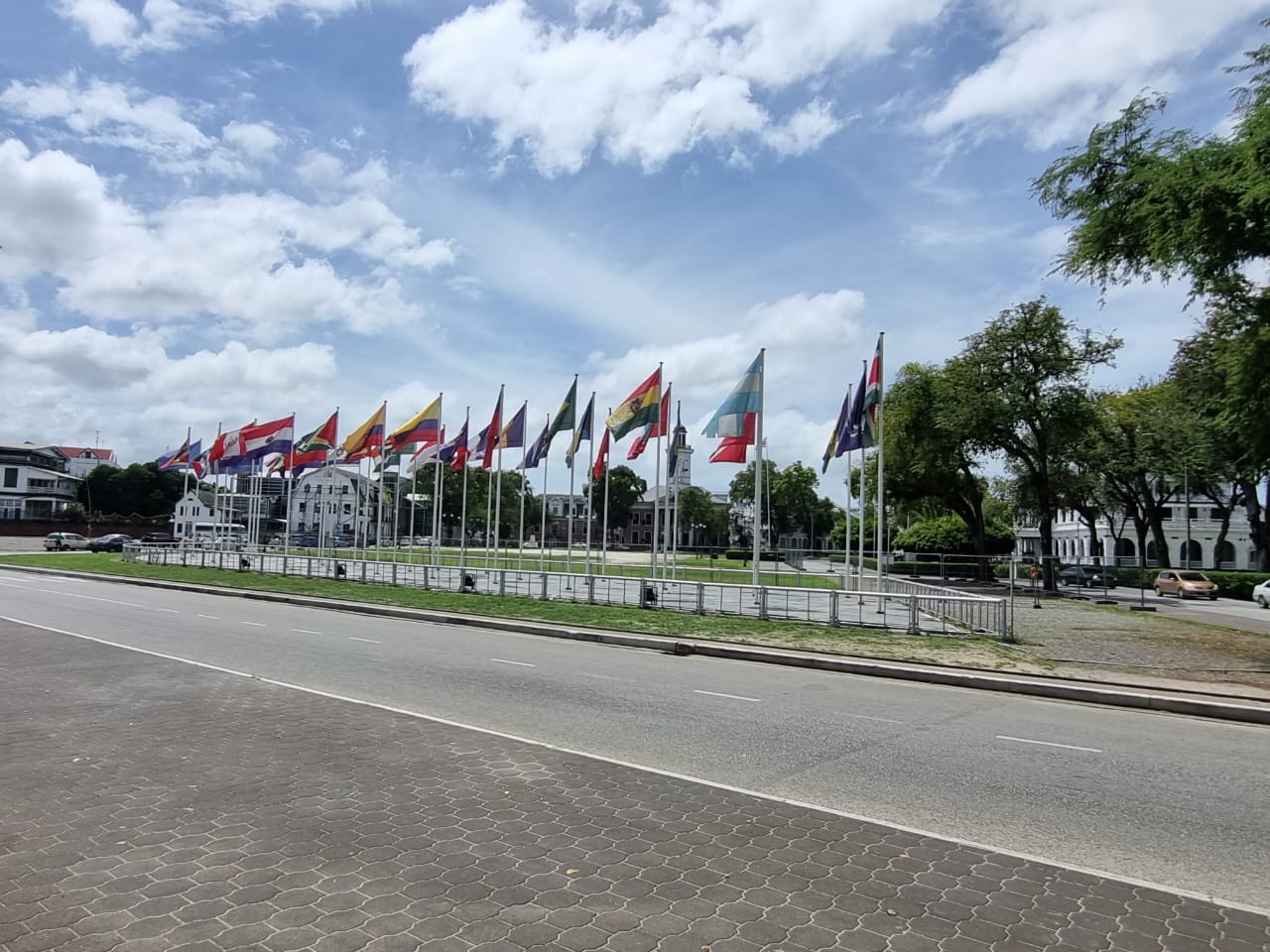
Inclusive Governance in Suriname
Between 2021 and 2024, the Joint Programme Leaving No One Behind, Building Resilience, and Improving Livelihoods of Indigenous and Tribal Peoples was implemented in partnership with UNDP, the Ministry of Regional Development and Sport, the Ministry of Social Affairs and Housing, the Medical Mission, and Indigenous and Tribal Peoples (ITP) umbrella organizations, VIDs and Kampos.
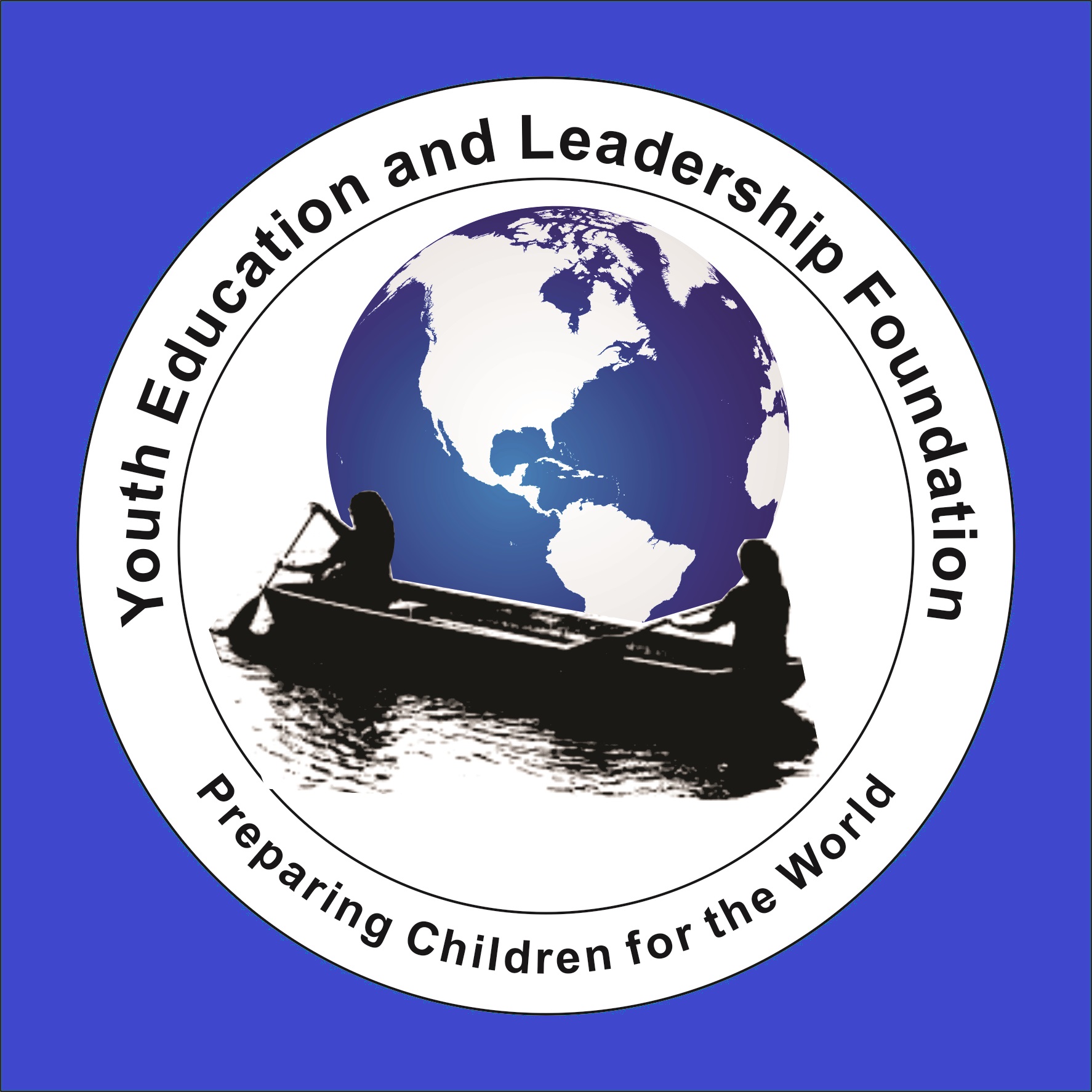
Indigenous Rights in the Amazon
With funding from the United States Embassy in Suriname and the sponsorship of the Youth Education and Leadership Foundation and Global Americans, we are pleased to present "Indigenous Rights and Extractive Industries in the Amazon," a two-day virtual conference on human rights and environmental issues in the Amazon. Indigenous Rights in the Amazon September 23, 10:00 AM to 11:00 AM EDT Speakers: - Luis Gilberto Murillo, Colombia's former Minister of Environment and Sustainable Development - Ine Apapoe, Lecturer at the Anton De Kom University of Suriname - Magda Monteza, Strategic Planning Specialist, Panamanian Ministry of Government - Jorge Andrés Forero Gonzáles, Director of Peacebuilding, Al Centro (Colombia) Moderator: Guy Mentel, Executive Director, Global Americans
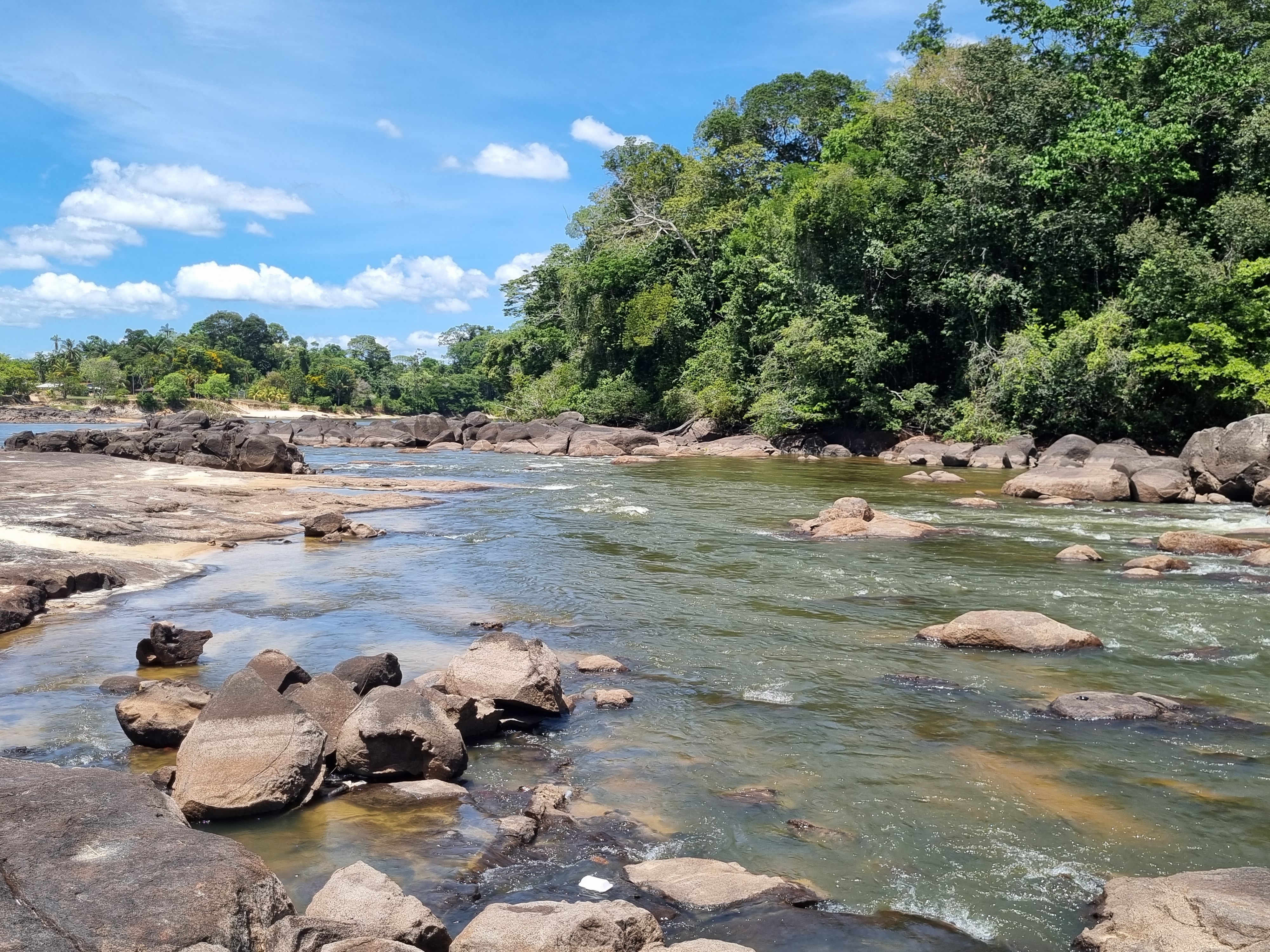
Extractive Industries in the Amazon webinar
With funding from the United States Embassy in Suriname and the sponsorship of the Youth Education and Leadership Foundation and Global Americans, is pleased to present "Indigenous Rights and Extractive Industries in the Amazon," a two-day virtual conference on human rights and environmental issues in the Amazon. Speakers: - Mark Pieth, Professor at the Basel Institute of Governance, former Chair of both UN Illegal Drug Trafficking and OECD Anti-Bribery Working Groups - Luz Nagle, Professor at Stetson University Law School and former Judge in Medellín - Bruce Zagaris, Partner with Berliner Corcoran & Rowe LLP & Founder of the International Enforcement Law Reporter - Julia Marisa Sekula, Climate Security Program Coordinator at Instituto Igarapé Moderator: Guy Mentel, Executive Director, Global Americans
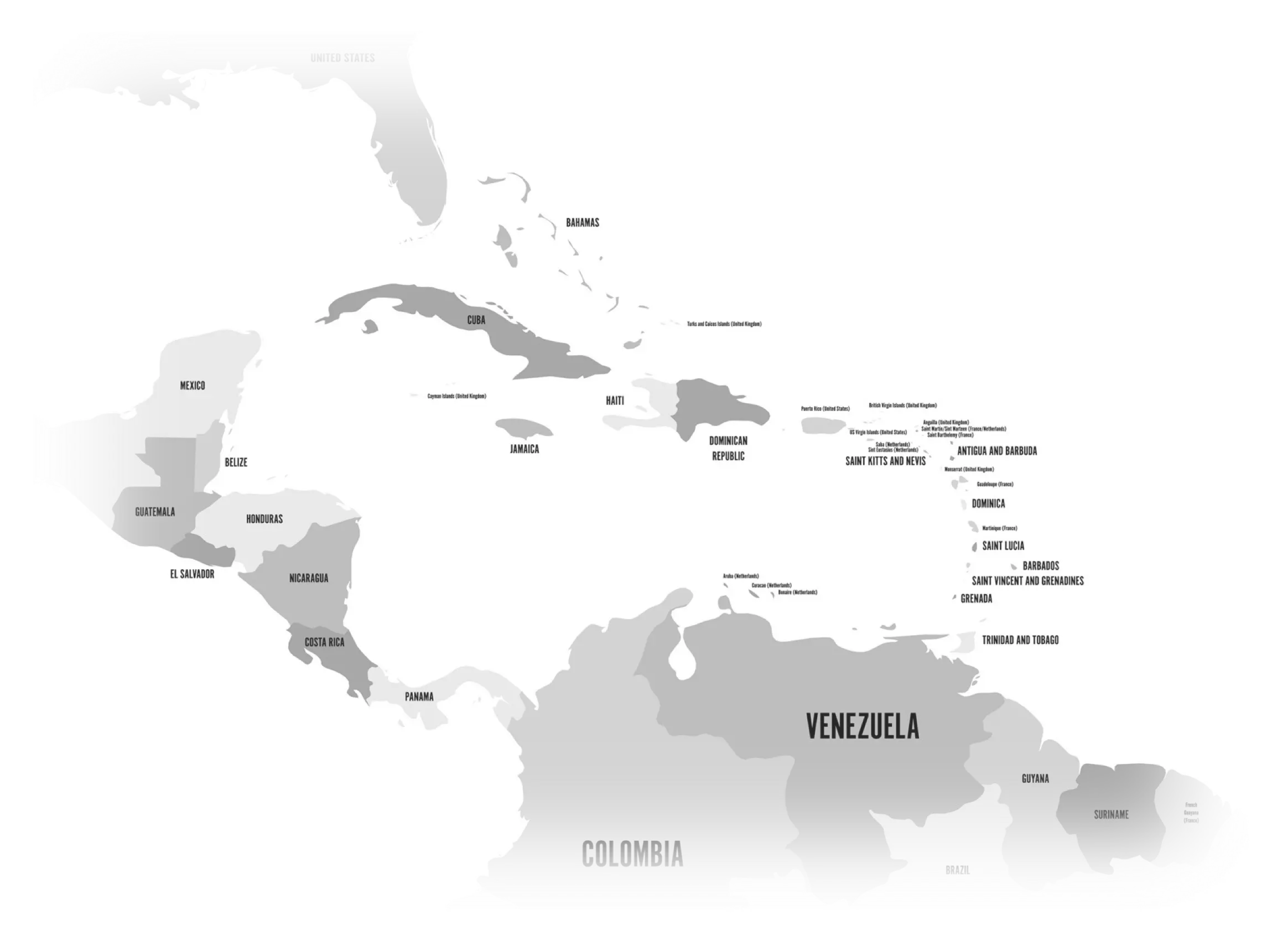
Good Governance in the Caribbean: Obstacles and Opportunities
The Caribbean has too often been relegated to the back seat of most Western Hemisphere policy discussions. With the exception of Cuba, the countries of the region have rarely emerged atop United States foreign policy priority lists. From climate change to blue economy issues to food security and increased digital connectivity, the Caribbean, with all of the challenges it faces, is also home to extraordinary opportunity and possibility
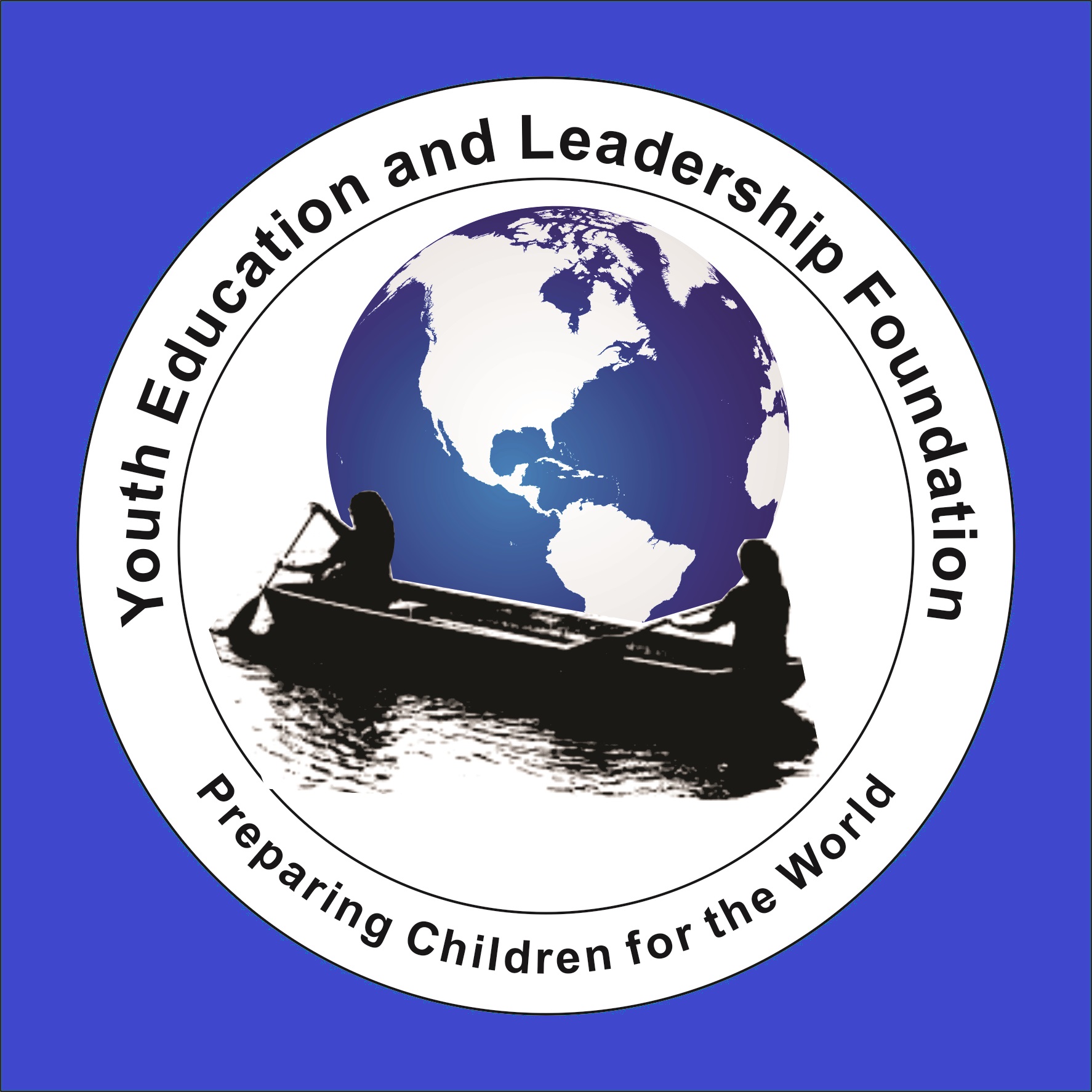
A Region in Transition: Building a Post-Pandemic Economy in the Caribbean
On Wednesday, December 1, Global Americans and the Caribbean Policy Consortium, with support from the U.S. Embassy in Suriname, hosted a virtual panel on social and economic development in the Caribbean.

Economic crisis in Suriname: What’s next?
Suriname, a country of roughly 600,000 people in northeast South America, is part of the Guyana-Suriname Basin—often called the “Holy Grail” of oil and gas. Major oil and gas discoveries within the last six years revealed at least 13 billion barrels